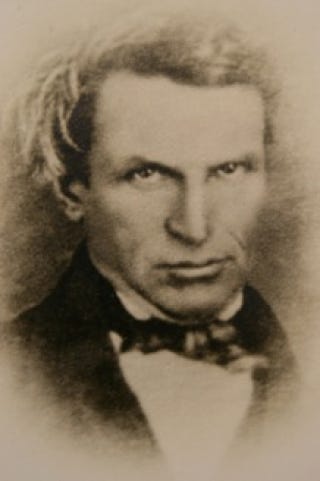Poor creatures! I wonder they durst go to bed,—for whenever a man sleeps without dreaming, he is as much annihilated as he will ever be.
Here’s another excerpt from one of Dr. Charles Knowlton’s many letters to the editor of the Boston Investigator. This time he weighs in on immortal souls and fear:
Yes, my hearers, to my thinking, the idea of a soul, in one way and another, directly and indirectly, has given rise to an incalculable amount of positive misery, and prevented, perhaps, an equal amount of happiness; we can see its influence in nearly all the affairs of life.
I speak not without my own experience, when I say, it is for the happiness of individuals, to be freed of all their jumble of hopes and fears—all their notions about souls, a future state, &c. The calm and natural doctrine of Materialism, which cannot be shaken—which seeks investigation, instead of shrinking from it, will alone render individuals and mankind, peaceable, serene, and happy.
Doubtless many who know not what it is to enjoy the views of the Materialist, think them gloomy. They have been so pampered with a mixture of sour sauce and sweetmeats, that they have no stomach for the solid, wholesome fare of Nature—they think annihilation a horrible idea.
Poor creatures! I wonder they durst go to bed,—for whenever a man sleeps without dreaming, he is as much annihilated as he will ever be.
Is there any uneasiness, any longings, any thoughts about the grave, death, hell, &c. in a profound sleep? None at all. Time is nothing. There is more misery in thinking of death for one moment, than there is in being dead ten thousand years and he is the wisest, who troubles himself the least about it. One religious lunatic has already undergone forty million times more misery than all the dead of the world ever have, or ever will undergo. So says a Materialist.
Letter to the Boston Investigator, Friday April 12, 1833.





I like this spirited defense from a Materialist - and, in an intriguing coincidence, it connects to what I’ve been thinking about regarding the “materiality” of writing and information - or the lack thereof. What happens to our connection with words when it’s all virtual? (in related news, political philosophers now talk about the challenges to the “materiality of democracy” when discussing disinformation and AI).